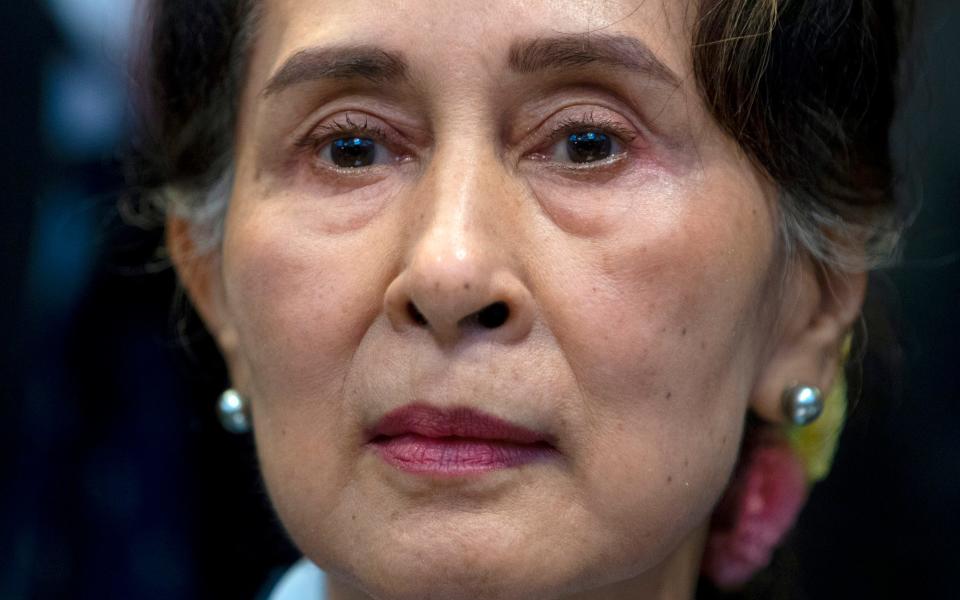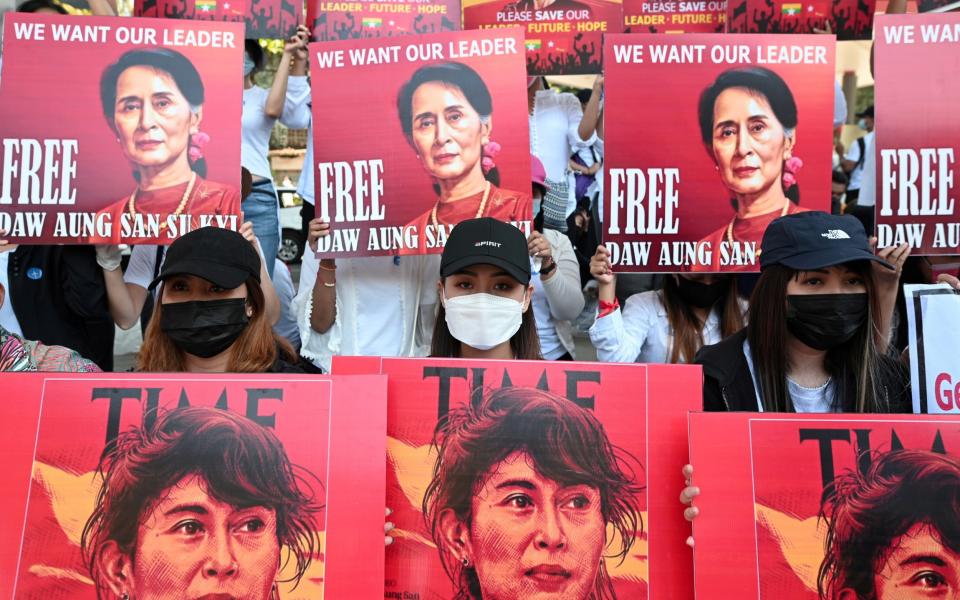Aung San Suu Kyi dismissed as not progressive enough by young activists

Myanmar’s civilian leader Aung San Suu Kyi may face the rest of her life incarcerated, but a younger generation of activists says the pro-democracy movement no longer relies on the Nobel Laureate as a figurehead.
While she remains popular and there is widespread anger over the injustice of her imprisonment, the military has created a vacuum which has been filled with a new, confrontational form of resistance and calls for a more progressive future leadership for the country.
For many, the brutality of the coup has opened their eyes to military atrocities committed against ethnic minorities while Ms Suu Kyi was in government. She defended her government against geocide charges against the Rohingya Muslims in 2019 after hundreds of thousands were displaced during a brutal crackdown.

Since it seized power on February 1 and detained Ms Suu Kyi, 76, the junta has sought to silence the Nobel Laureate who for years was the face of opposition to military oppression, holding her under house arrest and putting her on trial for a raft of charges while placing a gagging order on her lawyers.
Last week she was sentenced to two years in jail for inciting dissent and breaking Covid rules and on Tuesday, she will face charges of possessing illegal walkie-talkies. In total, Ms Suu Kyi has been slapped with 11 indictments, including several charges of corruption - each carrying a possible 15-year sentence.
But now, many young pro-democracy protesters are looking elsewhere for leadership.
“We can clearly see how the young generations are already looking beyond Daw Aung San Suu Kyi for a bigger future. These younger generations cannot be controlled by any person or any organisation. They have their own way of doing things,” said Thinzar Shunlei Yi, a high profile 30-year-old rights activist.
“Since the coup, the people of Myanmar have learned big lessons because violations, imprisonments, arbitrary arrests, killings, have been happening to many others, especially the Rohingya population, the Karen, Kachin, other ethnic minorities.”
“Daw Aung San Suu Kyi was detained but people saw Myanmar go out together onto the streets,” she said.
Younger social-media-savvy protesters are drawing more inspiration from contemporaries struggling against authoritarianism in Hong Kong and Thailand than from veterans of Myanmar’s decades-long struggle for democracy.
Many have turned to a shadow national unity government of members of Ms Suu Kyi’s ousted National League for Democracy party, and ethnic and civil society figures for leadership.

“Everything is in full swing now and we try to keep going. Even if they imprison her, nothing will change our course,” said Thinzar Shunlei Yi.
Analysts say hundreds have also chosen to take up arms with insurgent groups in border regions, or with newly formed civilian militias, shunning Ms Suu Kyi’s long-held principle of non-violence.
“The non-violence movement is now dead in Burma,” said Kyaw Win, the executive director of the Burma Human Rights Network, adding that views towards Ms Suu Kyi were complex. Minorities felt “she betrayed them. For some people she is still a hero.”
David Mathieson, an independent Myanmar analyst said opposition to the junta had grown into a “kaleidoscope” of democratic, armed, underground and civil disobedience factions, all intent on overthrowing the military.
While many still saw her as a figure of defiance that had faced a lot of persecution, others did not want to wait around for her release from jail, while people in civil society and rights bodies already had little trust in her leadership, he said.
“One thing I have been hearing from lots of progressive people for several years is that the Western media loves to ask the question, who is the next Aung San Suu Kyi?” he said.
“And there are many in Myanmar saying we don’t want another Aung San Suu Kyi, we want lots of different people who reflect different approaches but who talk to each other.”

